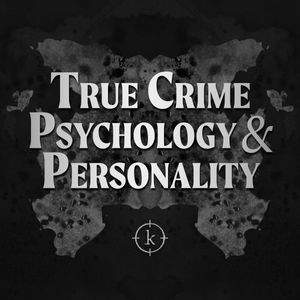
Diagnosing Dementia - Now and in the Future
06/21/21 • 44 min
2 Listeners
Previous Episode

Social Isolation and Loneliness - ISTAART Research Perspectives
This week is #LonelinessAwarenessWeek – to raise awareness of the challenges of social isolation, and how this can lead to loneliness, and the connection to Dementia, we worked with The Alzheimer's Association International Society to Advance Alzheimer's Research and Treatment (ISTAART), and the Global Brain Health Institute (GHBI) to record this special podcast. The impacts of SI/L (social isolation/loneliness) on the health and longevity of older adults is substantial. Researchers have found that social isolation or loneliness in older adults is associated with a 50% increased risk of developing dementia. With 5-25% of people over the age of 65% saying they experience SI/L, prior to the pandemic, it is now surprise that the situation has only worsened in the last 18 months. Journalist, Writer and GHBI Fellow, Fernando Aguzzoli Peres discovers different perspectives of the challenges that come from SI/L, and the Research that is working to understand the issue and help. To get a first-hand of the difficulties and how one person is overcoming them, Fernando talks with Laureen Waters, Alzheimer’s Association National Early Stage Advisory Board Member who is herself living with a diagnosis of Early Onset Alzheimer’s Disease, living in Clover, South Carolina. To understand more about the research, how SI/L affects people and the impact we hear from Brian Lawlor, who is a Professor of Old Age Psychiatry at Trinity College Dublin, and Deputy Executive Director of the GBHI. Brian is a psychiatrist with an interest in dementia, late-life depression, loneliness and brain health. Brian has worked for over 30 years on developing services and delivering care to people with dementia. His research interests range from early detection and prevention to evaluating new treatments for dementia. You can find out more about our panellists, and their work on our website: www.dementiaresearcher.nihr.ac.uk For more information on this sensitive and important issue visit: In the USA - https://bit.ly/2RNF7Ny In the UK - https://bit.ly/35cCvf6 #LoneLinessAwarenessWeek - https://bit.ly/35duvKM For information on ISTAART Visit - http://www.alz.org/istaart _________________________ This podcast is brought to you in association with Alzheimer's Research UK and Alzheimer's Society, who we thank for their ongoing support.
Next Episode

A Special Request - Please Vote For Us
If you like this episode you’ll love
Episode Comments
Featured in these lists



Generate a badge
Get a badge for your website that links back to this episode
<a href="https://goodpods.com/podcasts/dementia-researcher-152321/diagnosing-dementia-now-and-in-the-future-14801999"> <img src="https://storage.googleapis.com/goodpods-images-bucket/badges/generic-badge-1.svg" alt="listen to diagnosing dementia - now and in the future on goodpods" style="width: 225px" /> </a>
Copy




